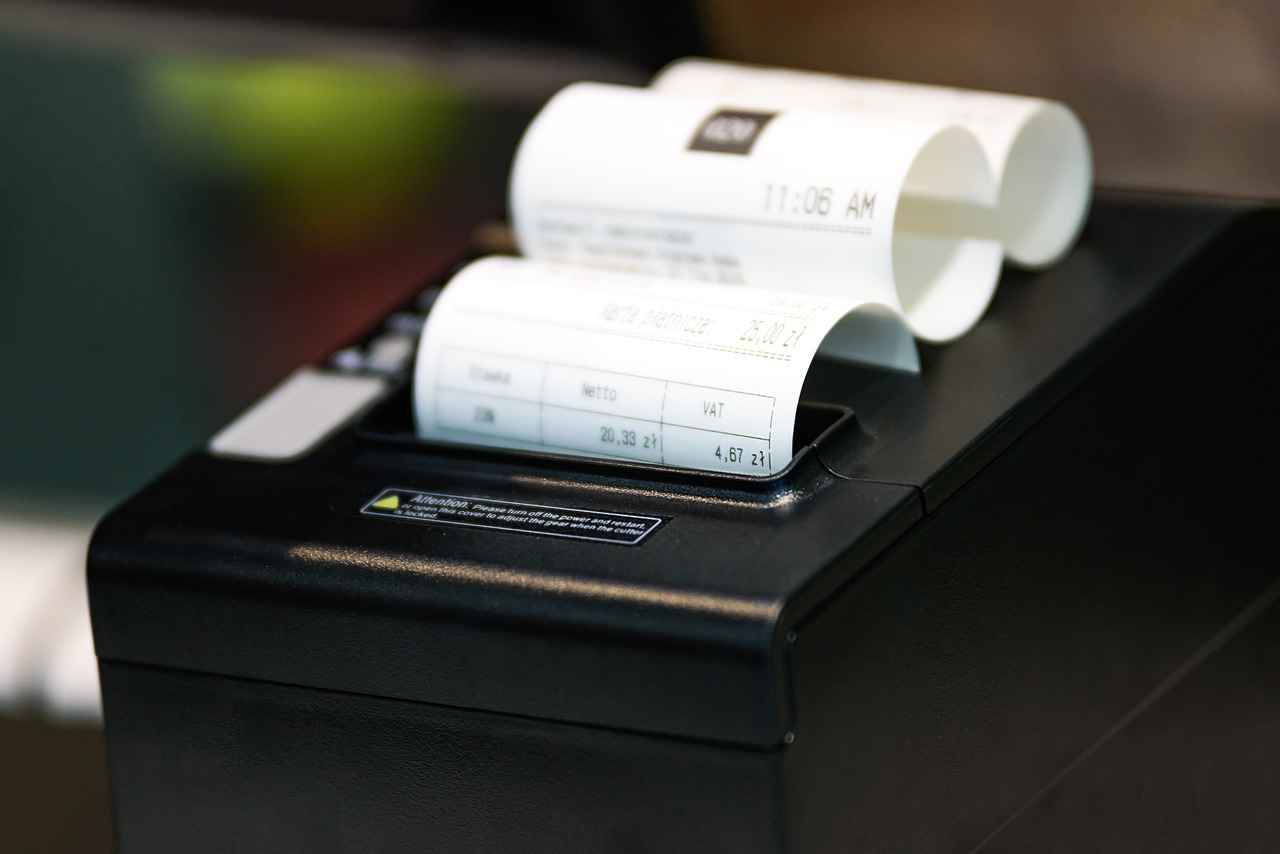This article delves into the complexities of professional tax in West Bengal, emphasizing its importance, applicable rates, exemptions, and compliance requirements. Understanding these aspects is crucial for both individuals and businesses to effectively manage their tax obligations.
What is Professional Tax?
Professional tax is a state-imposed tax on professions, trades, and employment. It is essential for financial planning and compliance for both employees and employers, making it vital to grasp its definition and implications.
Who is Liable to Pay Professional Tax?
In West Bengal, professional tax applies to individuals engaged in various professions or trades. This includes:
- Employees and Salaried Individuals: Those earning a salary must pay professional tax. Specific income brackets dictate the payment obligations.
- Self-Employed Professionals: Freelancers and business owners also fall under this tax category, with distinct criteria for compliance.
Professional Tax Rates in West Bengal
Understanding the tax rates is crucial for accurate financial planning. The current rates vary based on income levels:
| Income Range | Tax Rate |
|---|---|
| Up to ₹10,000 | ₹0 |
| ₹10,001 – ₹15,000 | ₹150 |
| Above ₹15,000 | ₹250 |
Exemptions and Deductions
Certain individuals may qualify for exemptions:
- Senior Citizens: Individuals above a certain age may receive specific exemptions.
- Physically Challenged Individuals: Other categories may also qualify for deductions based on their conditions.
How to Register for Professional Tax
Registration is vital for compliance. The process includes:
- Required Documentation: Essential documents are needed for a successful registration.
- Online Registration Process: The online method offers convenience for taxpayers.
Filing Professional Tax Returns
Filing returns is a key component of compliance. Important aspects include:
- Frequency of Filing: Taxpayers must understand how often to file returns.
- Common Mistakes to Avoid: Awareness of typical errors can ensure accurate submissions.
Consequences of Non-Compliance
Failure to comply can lead to severe penalties:
- Penalties and Fines: Late payments or non-filing can incur financial penalties.
- Legal Repercussions: Persistent non-compliance may result in legal action.
Conclusion: Navigating Professional Tax in West Bengal
Understanding professional tax in West Bengal is essential for all taxpayers. By adhering to the guidelines outlined in this article, individuals and businesses can ensure compliance and avoid potential penalties.

What is Professional Tax?
Professional tax is a state-imposed tax that applies to individuals engaged in various professions, trades, and employment. This tax is essential for state revenue and is levied based on income levels, making it a significant component of financial planning for both employees and employers. Understanding professional tax is crucial for compliance, as it helps individuals and organizations manage their tax obligations effectively.
In many states, including West Bengal, professional tax is collected by local authorities, and the rates can vary significantly. The tax is typically deducted from an employee’s salary by the employer, who is responsible for remitting it to the government. For self-employed individuals, it is their responsibility to pay the tax directly. This system ensures that the tax burden is shared among various income earners, promoting fairness in tax collection.
It is important to note that professional tax is separate from other forms of taxation, such as income tax. While income tax is based on total earnings, professional tax is specifically linked to the nature of the profession and the income generated from it. This distinction is vital for accurate financial planning and compliance.
Moreover, professional tax rates are structured into various slabs based on income levels. This means that higher earners may pay a larger percentage of their income compared to those with lower earnings. This tiered system is designed to ensure that the tax is equitable and reflective of an individual’s ability to pay.
In conclusion, understanding professional tax is essential for anyone engaged in a profession or trade. It not only aids in compliance but also helps in effective financial management. By being aware of the tax implications associated with their profession, individuals can avoid penalties and ensure that they meet their legal obligations.

Who is Liable to Pay Professional Tax?
In West Bengal, the professional tax is an important aspect of tax compliance for individuals engaged in various professions or trades. Understanding who qualifies as a taxpayer is essential for both employees and self-employed individuals to ensure they meet their legal obligations.
- Employees and Salaried Individuals: All employees earning a salary are subject to professional tax. The tax is typically deducted at source by the employer, making it crucial for employees to be aware of their income brackets and the corresponding tax rates. Salaried individuals must ensure that their employers are compliant with the tax regulations.
- Self-Employed Professionals: Self-employed individuals, including freelancers, consultants, and business owners, are also required to pay professional tax. These individuals must assess their income and register for professional tax if their earnings exceed the prescribed limit. It is important for self-employed taxpayers to maintain accurate records of their income to determine their tax liability.
- Part-Time Workers: Individuals working part-time or on a contractual basis may also be liable for professional tax depending on their earnings. It’s essential for these workers to evaluate their total income from all sources to ascertain their tax obligations.
- Professionals in Specific Fields: Certain professions, such as doctors, lawyers, and chartered accountants, are specifically mentioned in the professional tax regulations. These professionals must ensure they are registered and compliant with the tax requirements unique to their fields.
In summary, the liability to pay professional tax in West Bengal extends to a wide range of individuals engaged in various professions. Both employees and self-employed individuals must be aware of their obligations to avoid penalties and ensure compliance with local tax laws.
Employees and Salaried Individuals
are crucial contributors to the economy, and understanding their obligations regarding professional tax is essential. In West Bengal, salaried individuals earning a monthly salary are subject to professional tax, which is a mandatory state tax imposed on income derived from employment.
The professional tax structure in West Bengal categorizes salaried individuals into specific income brackets, each with corresponding tax rates. This system ensures that taxpayers contribute fairly based on their earnings. For instance, individuals earning less than ₹10,000 per month are exempt from paying professional tax. However, those with salaries exceeding this threshold are liable to pay a nominal tax, which varies according to their income level.
| Monthly Salary (₹) | Professional Tax (₹) |
|---|---|
| Up to 10,000 | Exempt |
| 10,001 to 15,000 | 150 |
| 15,001 to 25,000 | 300 |
| 25,001 to 40,000 | 500 |
| Above 40,000 | 1,000 |
The payment of professional tax is typically deducted at source by employers, who are responsible for remitting the collected tax to the state government. This system simplifies compliance for employees, ensuring that their tax obligations are met without requiring direct action on their part. However, it is essential for employees to be aware of their tax deductions and to verify that their employers are correctly processing these payments.
In conclusion, understanding the professional tax obligations for salaried individuals in West Bengal is vital for financial planning and compliance. By being informed about the income brackets and corresponding tax rates, employees can better navigate their financial responsibilities and avoid potential penalties.
Self-Employed Professionals
, including freelancers and business owners, hold a significant role in the economy. However, they also bear the responsibility of paying professional tax. Understanding the criteria and obligations for self-employed taxpayers is essential for compliance and financial planning.
In West Bengal, self-employed individuals are required to register for professional tax if their income exceeds a certain threshold. Typically, this includes individuals engaged in various professions such as consultants, artists, and traders. The professional tax applies to anyone earning an income through their business or freelance work, ensuring that all professionals contribute to the state’s revenue.
- Criteria for Self-Employed Taxpayers:
- Must have a registered business or freelance status.
- Income must exceed the prescribed exemption limit.
- Must comply with local regulations regarding tax payments.
Self-employed individuals are responsible for calculating their professional tax based on their annual income. The tax rates are structured in slabs, meaning that higher income brackets incur higher tax rates. This progressive taxation system is designed to ensure fairness and equity among taxpayers.
Additionally, self-employed professionals must file their professional tax returns annually, detailing their earnings and tax payments. It is crucial to maintain accurate records of income and expenses, as these will be necessary for tax calculations and potential audits.
In conclusion, while being self-employed offers flexibility and independence, it also comes with the obligation to comply with professional tax regulations. By understanding the criteria and responsibilities involved, self-employed individuals can ensure they meet their tax obligations effectively and avoid any penalties.

Professional Tax Rates in West Bengal
Understanding the rates of professional tax is crucial for effective financial planning and budgeting in West Bengal. This section delves into the current tax rates applicable to various income levels, enabling individuals and businesses to make informed decisions regarding their tax obligations.
Professional tax is a mandatory tax imposed by the state government on individuals engaged in professions, trades, or employment. In West Bengal, the rates vary based on income levels, and it is essential for taxpayers to be aware of these rates to avoid any compliance issues.
| Income Range (Monthly) | Tax Rate (Monthly) |
|---|---|
| Up to ₹10,000 | Nil |
| ₹10,001 to ₹15,000 | ₹150 |
| ₹15,001 to ₹25,000 | ₹200 |
| ₹25,001 to ₹40,000 | ₹250 |
| Above ₹40,000 | ₹300 |
It is important to note that these rates are subject to change, and taxpayers should stay updated with the latest notifications from the West Bengal government. Additionally, businesses operating in the state must also adhere to specific professional tax obligations, which may differ from those applicable to individuals.
Tax compliance is not only about paying the right amount but also involves timely payments and accurate reporting. Understanding these tax slabs allows both employees and employers to budget effectively and avoid penalties due to non-compliance.
In conclusion, being aware of the professional tax rates in West Bengal is essential for individuals and businesses alike. By comprehensively understanding these rates, taxpayers can ensure they remain compliant and avoid any unnecessary financial burdens.
Tax Slabs for Individuals
Understanding the tax slabs for individuals is crucial for effective financial planning and compliance. In West Bengal, the professional tax system categorizes individuals based on their income levels, applying different rates accordingly. This structure ensures that taxpayers contribute fairly based on their earnings.
The professional tax rates are structured into various income brackets, which determine the amount of tax owed. Here’s a detailed breakdown of the current tax slabs:
| Income Range (Monthly) | Tax Rate |
|---|---|
| Up to ₹10,000 | No Tax |
| ₹10,001 – ₹15,000 | ₹150 |
| ₹15,001 – ₹25,000 | ₹300 |
| ₹25,001 – ₹40,000 | ₹500 |
| Above ₹40,000 | ₹1,000 |
As illustrated in the table, individuals earning up to ₹10,000 are exempt from professional tax, while those with higher earnings must pay according to their respective income brackets. This tiered system is designed to alleviate the tax burden on lower-income individuals, ensuring that the tax system remains equitable.
Moreover, it is important to note that these tax rates are subject to periodic revisions by the state government. Therefore, staying updated with the latest tax regulations is essential for all taxpayers.
In conclusion, understanding the tax slabs for individuals in West Bengal not only aids in compliance but also assists in better financial management. By knowing where one falls within the income brackets, individuals can plan their finances effectively and avoid any potential penalties.
Tax Rates for Businesses
In West Bengal, businesses are subject to professional tax, which is a mandatory obligation that varies significantly from individual rates. Understanding these rates is essential for business owners to ensure compliance and effective financial planning.
Professional Tax Rates Overview
The professional tax rates for businesses in West Bengal are structured similarly to those for individuals but come with distinct criteria. Businesses are generally categorized based on their annual turnover, and the applicable rates will depend on this classification.
| Annual Turnover | Professional Tax Rate |
|---|---|
| Up to ₹1,00,000 | Nil |
| ₹1,00,001 to ₹5,00,000 | ₹2,500 |
| Above ₹5,00,000 | ₹5,000 |
Key Differences from Individual Rates
While individual professional tax rates are based on income slabs, business rates are determined by annual turnover. This distinction is crucial for business owners to understand, as it directly affects their tax liability. Additionally, businesses are required to register for professional tax and obtain a professional tax enrollment certificate.
Compliance and Penalties
Failure to comply with professional tax regulations can lead to penalties. Businesses must file returns and pay the tax within the stipulated time frame to avoid fines. The penalties for non-compliance can be substantial, making it imperative for business owners to stay informed and proactive.
Conclusion
Understanding the professional tax rates applicable to businesses in West Bengal is essential for compliance and financial health. By familiarizing themselves with the rates and requirements, business owners can avoid unnecessary penalties and ensure smooth operations.

Exemptions and Deductions
In West Bengal, understanding the available under the professional tax regime is crucial for eligible individuals and professionals. This section aims to clarify who qualifies for these benefits and the specific criteria that must be met.
Categories of Eligible Individuals
- Senior Citizens: Individuals aged 60 years and above are often eligible for exemptions. This age criterion allows senior citizens to enjoy relief from professional tax obligations, promoting financial ease during retirement.
- Physically Challenged Individuals: Those with disabilities may qualify for professional tax exemptions. The extent of the exemption can vary based on the degree of disability as recognized by legal standards.
- Women: In some cases, women may also receive special concessions or reduced rates, aiming to encourage their participation in the workforce.
- Low-Income Earners: Individuals earning below a certain income threshold might be exempt from paying professional tax altogether, ensuring that the tax burden does not disproportionately affect those with limited financial means.
Criteria for Exemptions
To qualify for these exemptions, individuals must provide valid documentation proving their eligibility. For instance, senior citizens must present identification that verifies their age, while physically challenged individuals may need to submit medical certificates. It is essential to stay informed about the specific requirements and ensure compliance with the necessary documentation.
Additional Deductions
In addition to the exemptions, certain deductions can also be claimed by eligible professionals. These may include expenses related to professional development, business operations, and other necessary costs incurred while earning income. Keeping meticulous records of all relevant expenses can help in maximizing deductions.
Conclusion
Understanding the exemptions and deductions available under the professional tax framework in West Bengal is vital for financial planning. By being aware of eligibility criteria and maintaining proper documentation, individuals can effectively manage their tax liabilities and ensure compliance with state regulations.
Exemptions for Senior Citizens
In West Bengal, senior citizens are afforded certain exemptions from professional tax, providing them with financial relief as they transition into retirement. This section will delve into the specific age criteria and the extent of these exemptions, ensuring that senior citizens understand their rights and benefits under the law.
Age Criteria for Exemptions
- The term senior citizen typically refers to individuals aged 60 years or older.
Extent of Exemptions
Senior citizens in West Bengal may be exempt from paying professional tax on income derived from specific sources. These exemptions can include:
- Pension Income: Monthly pension payments are often exempt from taxation.
- Investment Income: Income generated from certain investments may also qualify for exemption.
- Part-time Employment: Senior citizens engaged in part-time work may be eligible for reduced tax rates.
Application Process
To avail of these exemptions, senior citizens must submit relevant documentation during the tax filing process. This may include:
- Proof of age (such as a birth certificate or government-issued ID)
- Details of income sources to establish eligibility for exemptions
In conclusion, the exemptions available to senior citizens in West Bengal serve as a crucial support system, allowing them to enjoy their golden years with less financial burden. Understanding these benefits is essential for effective tax planning and compliance.
Other Eligible Exemptions
In addition to the exemptions available for senior citizens, there are various other categories of individuals who may qualify for professional tax exemptions in West Bengal. Understanding these exemptions is crucial for ensuring compliance and optimizing tax liabilities.
- Physically Challenged Individuals: Individuals with disabilities may be eligible for exemptions from professional tax. The criteria typically include a recognized degree of disability, which can be verified through medical documentation. This exemption aims to support those who face additional challenges in the workforce.
- Women Entrepreneurs: Women who own and operate their businesses may also qualify for certain exemptions. This initiative encourages female participation in entrepreneurship, promoting gender equality in the professional landscape.
- Retired Professionals: Retired individuals who have previously been engaged in professional activities may be exempt from paying professional tax, especially if they meet specific age requirements. This exemption recognizes the contributions of retired professionals to society.
- Students and Trainees: Full-time students or trainees engaged in internships or vocational training may also be exempt from professional tax. This exemption is designed to alleviate the financial burden on young individuals entering the workforce.
- Low-Income Earners: Individuals earning below a certain income threshold may qualify for exemptions. This provision is aimed at providing relief to those who are economically disadvantaged.
To apply for these exemptions, individuals must provide appropriate documentation, such as medical certificates for disabilities or proof of income status. It is important to stay informed about the eligibility criteria and application process to benefit from these exemptions effectively.
In conclusion, understanding the various categories of exemptions available under professional tax regulations in West Bengal is essential for eligible individuals. By leveraging these exemptions, taxpayers can reduce their financial burden and ensure compliance with local tax laws.

How to Register for Professional Tax
Registering for professional tax is a crucial step for compliance, ensuring that both individuals and businesses adhere to the regulations set forth by the state government. This guide provides a comprehensive, step-by-step approach to facilitate the registration process in West Bengal.
Step 1: Understand the Eligibility Criteria
- Individuals engaged in professions, trades, or employment.
- Self-employed professionals, including freelancers and business owners.
- Employees earning a salary above the exempted limit.
Step 2: Gather Required Documentation
Before initiating the registration process, ensure you have the following documents ready:
- Proof of identity (e.g., Aadhaar card, PAN card).
- Proof of address (e.g., utility bill, rental agreement).
- Professional qualification certificates (if applicable).
- Bank account details.
Step 3: Choose Your Registration Method
There are two primary methods for registering for professional tax in West Bengal:
- Online Registration: Visit the official West Bengal government website and navigate to the professional tax section. Fill out the online application form, upload the necessary documents, and submit it.
- Offline Registration: Alternatively, you can visit the local municipal office to obtain a physical application form. Complete the form and submit it along with the required documents.
Step 4: Receive Your Registration Certificate
Upon successful registration, you will receive a registration certificate, which is essential for compliance. Ensure that you keep this document safe for future reference.
Conclusion
Registering for professional tax is not only a legal requirement but also a step towards responsible financial management. By following this guide, individuals and businesses in West Bengal can ensure they meet their tax obligations efficiently.
Required Documentation
is a crucial aspect of the registration process for professional tax in West Bengal. Ensuring that all necessary documents are prepared and submitted accurately can streamline the registration and compliance process significantly. Below is a detailed list of the essential documents and information you will need to complete your registration.
- Identity Proof: A government-issued identity card such as an Aadhar card, voter ID, or passport.
- Address Proof: Documents like utility bills, lease agreements, or bank statements that confirm your residential address.
- Professional Qualification: Certificates or degrees that validate your professional qualifications, especially for self-employed individuals.
- Business Registration Documents: For businesses, documents such as the Certificate of Incorporation or Partnership Deed are necessary.
- Income Proof: Recent payslips, income tax returns, or bank statements that reflect your earnings.
- Photographs: Recent passport-sized photographs for identification purposes.
In addition to the above documents, it is important to have the following information ready:
- Contact Information: A valid phone number and email address for communication.
- Details of Employment: For salaried individuals, the name and address of the employer, along with your designation.
- Nature of Business: For self-employed professionals, a brief description of the nature of your business or trade.
Gathering these documents in advance can facilitate a smoother registration process and help avoid delays. Always ensure that the documents are current and accurately reflect your professional status.
By adhering to these guidelines, you can ensure that your registration for professional tax is completed without any hitches, paving the way for compliance with state regulations.
Online Registration Process
In the digital age, registering for professional tax has been streamlined significantly, making it more accessible for individuals and businesses in West Bengal. The is not only efficient but also user-friendly, allowing taxpayers to complete their obligations from the comfort of their homes.
To begin the registration process, follow these simple steps:
- Visit the Official Website: Navigate to the West Bengal government’s official tax portal.
- Create an Account: If you are a first-time user, you will need to create an account by providing basic information such as your name, email address, and contact number.
- Fill Out the Registration Form: Complete the online registration form with accurate details, including your profession, income, and other relevant information.
- Upload Required Documents: Prepare and upload necessary documents such as proof of identity, address, and professional qualifications.
- Submit Your Application: Once all information is filled in and documents uploaded, review your application and submit it for processing.
- Receive Confirmation: After submission, you will receive a confirmation email with your registration details and a unique identification number.
Required Documentation
Before starting the online registration, ensure you have the following documents ready:
- Proof of identity (Aadhaar card, PAN card, etc.)
- Proof of address (utility bill, rental agreement, etc.)
- Professional qualifications (if applicable)
By following these steps, registering for professional tax online in West Bengal can be a hassle-free experience, ensuring compliance with state regulations without the need for physical visits to tax offices.
In conclusion, the online registration process not only saves time but also simplifies the way taxpayers fulfill their obligations. Embracing technology in tax registration is a step towards a more efficient and transparent taxation system in West Bengal.

Filing Professional Tax Returns
is an essential aspect of ensuring compliance with tax regulations in West Bengal. This process requires taxpayers to be aware of the necessary forms, deadlines, and protocols to avoid any penalties. Understanding the filing process can significantly ease the burden of tax compliance for both individuals and businesses.
When it comes to , the first step is to gather all relevant documentation. Taxpayers need to ensure they have their income details, previous tax returns, and any other supporting documents ready. This preparation helps in accurately reporting income and calculating the tax owed.
| Filing Frequency | Deadline |
|---|---|
| Monthly | 7th of the following month |
| Quarterly | 15th of the following month after the quarter ends |
The deadlines for filing returns are crucial. Taxpayers must adhere to the specified timelines to avoid late fees and penalties. In West Bengal, the professional tax returns can be filed monthly or quarterly, depending on the taxpayer’s preference and income level.
Additionally, it is important to note that common mistakes can lead to complications during the filing process. Some frequent errors include incorrect income reporting, failing to meet deadlines, and not utilizing the correct forms. Taxpayers should double-check their information before submission to ensure accuracy.
In conclusion, filing professional tax returns in West Bengal is a straightforward yet vital process. By understanding the requirements and adhering to deadlines, taxpayers can navigate their obligations effectively and maintain compliance.
Frequency of Filing
Understanding the frequency of filing professional tax returns is essential for maintaining compliance with tax regulations in West Bengal. Taxpayers need to be aware of the specific timelines that govern the submission of their returns to avoid penalties and ensure smooth financial operations.
In West Bengal, the frequency of filing professional tax returns varies based on the type of taxpayer:
- Employees and Salaried Individuals: Typically, employers are responsible for deducting professional tax from their employees’ salaries. Returns must be filed monthly, reflecting the tax deducted for each employee during that month. Employers must ensure that the returns are submitted by the 15th of the following month.
- Self-Employed Professionals: Individuals who are self-employed must file their professional tax returns quarterly. The due dates for these filings are set for the end of each quarter, requiring taxpayers to report their income and calculate the applicable tax based on the earnings from the previous quarter.
- Businesses: Business entities are required to file their professional tax returns on a monthly or quarterly basis, depending on their size and revenue. Larger businesses may be mandated to file monthly, while smaller entities can opt for quarterly submissions. The deadlines align with those of self-employed individuals.
It is crucial to keep track of these deadlines and maintain accurate records of income and tax deductions. Missing a filing deadline can result in penalties and interest on unpaid taxes, which can accumulate quickly. Therefore, setting reminders and organizing financial documents can help ensure timely submissions.
In conclusion, understanding the frequency of filing professional tax returns is vital for compliance. By adhering to the established timelines, taxpayers can avoid unnecessary complications and focus on their professional endeavors.
Common Mistakes to Avoid
When it comes to filing professional tax, many taxpayers often find themselves falling into common pitfalls that can lead to mistakes. These errors can result in delays, penalties, or even legal issues. Understanding these common mistakes is essential for ensuring a smooth filing process. Below, we outline some of the most frequent errors made by taxpayers.
- Incorrect Personal Information: One of the most frequent mistakes is entering incorrect personal details, such as name, address, or PAN number. This can lead to discrepancies and complications in processing your return.
- Missing Documentation: Failing to submit necessary documents can hinder the filing process. Ensure you have all required paperwork, including income statements and proof of exemptions.
- Ignoring Tax Slabs: Many taxpayers do not pay attention to the applicable tax slabs for their income bracket. This oversight can lead to overpayment or underpayment of taxes.
- Late Filing: Missing the deadline for filing returns can result in penalties. It is crucial to be aware of the due dates and to file on time to avoid unnecessary fines.
- Not Claiming Deductions: Some taxpayers overlook potential deductions and exemptions they are entitled to, which can lead to higher tax liabilities than necessary. Familiarize yourself with available deductions to maximize your savings.
- Inaccurate Calculations: Simple arithmetic errors can lead to significant issues. Double-check all calculations or consider using tax software to minimize errors.
By being aware of these common mistakes, taxpayers can take proactive measures to ensure accurate and timely submissions. Taking the time to review your filing process can save you from potential headaches and financial repercussions in the future.

Consequences of Non-Compliance
In West Bengal, adhering to professional tax regulations is not merely a formality; it is a legal obligation that carries significant implications for individuals and businesses alike. Failing to comply with these regulations can lead to serious repercussions that extend beyond mere financial penalties.
When taxpayers neglect their professional tax duties, they may encounter a range of penalties and fines. These penalties can vary based on the severity of the non-compliance, including:
- Late Payment Fees: Taxpayers who fail to pay their professional tax on time may incur additional charges, which can increase the overall tax liability.
- Interest on Outstanding Amounts: Accumulated interest may be charged on any unpaid tax, compounding the financial burden.
- Fines for Non-Filing: Failing to file professional tax returns can result in hefty fines, which are calculated based on the duration of the delay.
Moreover, the legal repercussions of non-compliance can be severe. In extreme cases, persistent failure to comply with professional tax obligations may lead to:
- Legal Action: Authorities may initiate legal proceedings against persistent non-compliant taxpayers, which can lead to court appearances and further legal costs.
- Seizure of Assets: In extreme cases, the government may take measures to recover unpaid taxes through asset seizure, which can significantly disrupt a taxpayer’s financial stability.
Understanding these consequences is critical for both individuals and businesses in West Bengal. By staying informed and compliant, taxpayers can effectively avoid the pitfalls associated with professional tax non-compliance.
In summary, the implications of failing to adhere to professional tax regulations in West Bengal are multifaceted and can have lasting effects on financial and legal standings. It is imperative for all taxpayers to prioritize compliance to safeguard their interests.
Penalties and Fines
Understanding the Financial Implications of Late Payments and Non-Filing
Tax compliance is a crucial aspect of financial responsibility for both individuals and businesses. In West Bengal, failing to adhere to professional tax regulations can lead to significant financial repercussions. This section delves into the various penalties and fines associated with late payments and non-filing, ensuring taxpayers are well-informed about their obligations.
| Type of Penalty | Description | Calculation Method |
|---|---|---|
| Late Payment Penalty | Imposed when tax payments are not made by the due date. | Typically a percentage of the unpaid tax amount, often around 1.5% per month. |
| Non-Filing Penalty | Applicable when a taxpayer fails to file their returns on time. | A fixed amount, which can vary based on the duration of the delay. |
| Interest on Unpaid Tax | Accrued on any outstanding tax amount. | Calculated at a specified rate, compounding monthly until paid. |
Taxpayers must be aware that penalties can accumulate rapidly, leading to a snowball effect that can strain finances. For instance, if a taxpayer is late by several months, the cumulative penalties and interest can exceed the original tax due. It is imperative to prioritize timely payments and accurate filings to avoid these financial burdens.
Furthermore, taxpayers should keep comprehensive records of all transactions and communications regarding their tax obligations. This practice not only aids in compliance but also serves as protection against potential disputes with tax authorities.
In conclusion, understanding the various penalties associated with late payments and non-filing is essential for all taxpayers in West Bengal. By staying informed and proactive, individuals and businesses can effectively manage their tax responsibilities and avoid unnecessary financial penalties.
Legal Repercussions
Tax compliance is not just a matter of following rules; it is a crucial aspect of financial responsibility that can significantly impact individuals and businesses. When taxpayers fail to adhere to professional tax regulations in West Bengal, the consequences can be severe. In this section, we will delve into the potential legal repercussions that may arise from non-compliance, emphasizing the importance of understanding and fulfilling tax obligations.
- Financial Penalties: One of the most immediate consequences of non-compliance is the imposition of financial penalties. Taxpayers who fail to file their returns or pay their dues on time may face fines that can accumulate over time, leading to substantial financial burdens.
- Legal Action: In extreme cases, persistent non-compliance can escalate to legal action. Tax authorities have the power to initiate proceedings against individuals or businesses that consistently evade their tax responsibilities. This can result in court appearances and further legal complications.
- Seizure of Assets: Tax authorities may also take drastic measures, including the seizure of assets. This could involve garnishing wages or placing liens on property, which can severely disrupt personal and business finances.
- Criminal Charges: In cases of willful tax evasion or fraud, taxpayers may face criminal charges. This can lead to imprisonment, which not only affects the individual but can also tarnish the reputation of businesses involved.
Understanding the legal ramifications of non-compliance is essential for all taxpayers. By adhering to tax laws and fulfilling obligations, individuals and businesses can avoid these serious consequences and contribute positively to the community.
In conclusion, compliance with professional tax regulations is not merely a legal requirement; it is a vital aspect of responsible citizenship. By staying informed and proactive, taxpayers can navigate their obligations effectively, ensuring they remain on the right side of the law.

Conclusion: Navigating Professional Tax in West Bengal
Understanding professional tax in West Bengal is crucial for both individuals and businesses operating within the state. This tax, imposed by the state government, is applicable to various professions and trades, making it essential for taxpayers to be well-informed about their obligations. By adhering to the guidelines provided in this article, taxpayers can ensure compliance and avoid potential penalties.
Professional tax is not merely a financial obligation; it is a part of the broader tax ecosystem that helps fund state services. Therefore, it is imperative to recognize who is liable to pay this tax. Employees, self-employed professionals, and business owners are all subject to these regulations, and understanding the applicable tax rates is vital for effective financial planning.
The tax rates differ based on income levels, with specific slabs outlined for individuals and businesses. Additionally, certain groups, such as senior citizens and individuals with disabilities, may qualify for exemptions, making it essential to stay informed about these criteria.
For compliance, registering for professional tax is a key step. Taxpayers must gather the necessary documentation and understand the registration process, which can now be completed online, simplifying the experience. Furthermore, filing professional tax returns accurately and on time is critical to avoid penalties and fines.
In conclusion, navigating the complexities of professional tax in West Bengal requires diligence and awareness. By staying informed and following the outlined steps, taxpayers can ensure compliance, thereby contributing positively to the state’s economy while avoiding unnecessary legal repercussions.
Frequently Asked Questions
- What is professional tax?
Professional tax is a state-imposed tax on individuals engaged in various professions, trades, or employment. It’s crucial for both employees and employers to understand this tax for better financial planning and compliance.
- Who needs to pay professional tax in West Bengal?
In West Bengal, anyone earning a salary or income from self-employment must pay professional tax. This includes salaried individuals and self-employed professionals like freelancers and business owners.
- What are the current professional tax rates?
The rates of professional tax vary based on income levels. Individuals and businesses are taxed at different slabs, so it’s essential to check the latest rates to ensure accurate budgeting.
- Are there any exemptions available?
Yes, certain groups, including senior citizens and physically challenged individuals, may qualify for exemptions or deductions from professional tax. It’s important to understand the eligibility criteria for these benefits.
- How can I register for professional tax?
Registration for professional tax can be done online or offline. You’ll need to gather specific documentation, and the process is relatively straightforward once you have everything in order.
- What happens if I don’t comply with professional tax regulations?
Non-compliance can lead to penalties, fines, and even legal repercussions. It’s vital to adhere to tax laws to avoid these serious consequences.
























































